Nov 5, 2018
Dan Kunanec: Changing the Food System Through Education
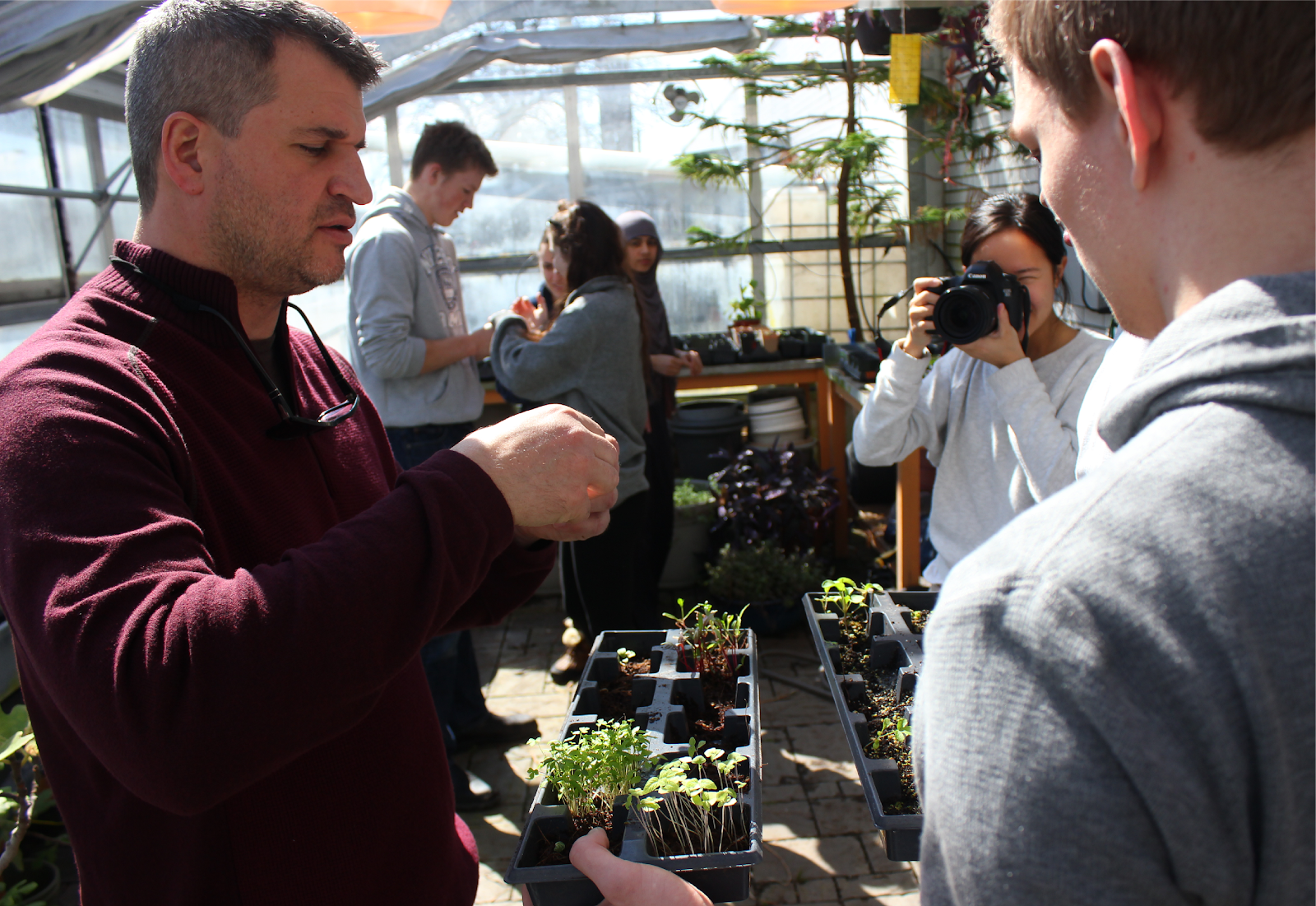
Dan Kunanec (left), inside a greenhouse at the Don Mills Collegiate Institute in Toronto, Canada.
by Scott Matus
Did you experience growing grapes and potatoes in high school? Did you learn how to monitor and operate an aquaponic system? How about how to bake bread from scratch using an outdoor wood-fired oven?
To many, these activities might seem a little outside of a typical high school curriculum, but they are exactly what students (typically grade 11 and 12) learn in Dan Kunanec’s Green Industries program at the Don Mills Collegiate Institute in Toronto, Canada. The program is meant to be a platform for students to learn about design, systems and environmental stewardship.
The mission is simple: develop the great city builders of the future.
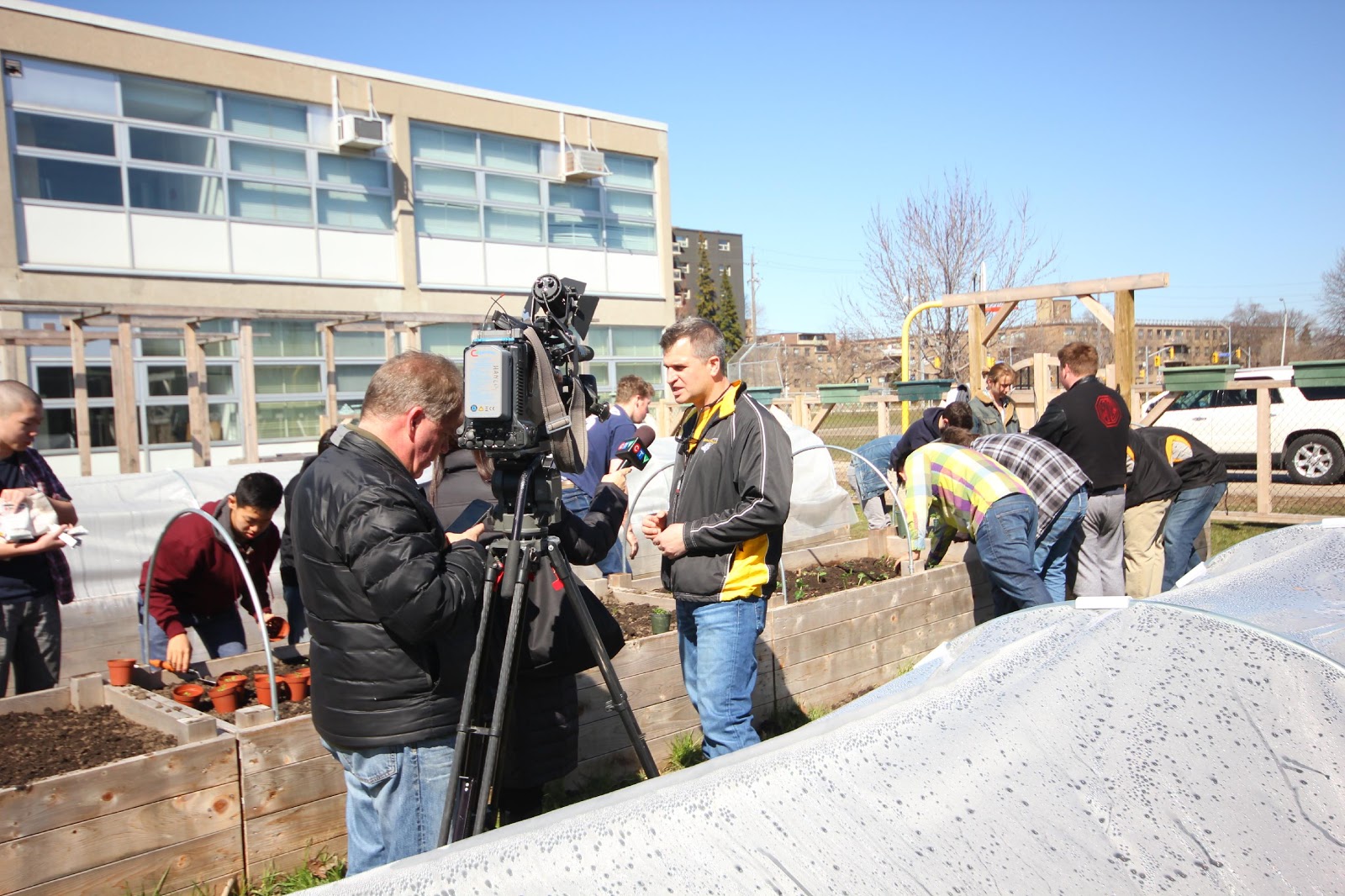
Not only does the school have an outdoor farm equipped with raised-beds built and attended to by the students—an impressive and inspiring accomplishment for any school—but thanks to Dan’s vision, the school now has a glass greenhouse, indoor aquaponics system, outdoor kitchen with wood-fired oven, 160-vine vineyard, and plans on the way for an orchard and indoor kitchen as well.
“We want living and learning labs for every class,” Dan explains, “so we're kind of all over the place.”
Dan has also developed a number of partnerships with local groups to add further value to the program’s many components. He’s partnered with the chief grower of a local family-owned organic and biodynamic winery, Tawse Winery, to help teach the students about viticulture (the study and practice of grape cultivation) and to explore the possibilities and pathways for viticulture in Ontario's climate. Another relationship he’s developed is with the renowned GEORGE Restaurant in Toronto, which purchases vegetables directly from the school’s farm for Executive Chef Lorenzo Loseto’s creative plates.
Thanks to these achievements, and rightfully so, Dan Kunanec has become somewhat of a local celebrity. Ontario public broadcast station TVO did a feature in 2015 on Dan’s Green Industries program as part of their Learning Portraits series.
Despite his passion and success as an educator, Dan describes his pathway into education as a very atypical journey—he only first started teaching at age 30.
Before teaching, Dan owned and operated a design and construction firm that took him around the world for business. While the job was exciting, Dan explains that it was also a huge time commitment, and as soon as children started to enter the picture he knew it was time to begin looking at other careers that would allow him to be more present for his kids.
Ironically enough, the one career Dan had no interest in was teaching. “Everyone said I'd be good at it,” Dan explains, “but teaching was the last job I wanted to do because I was around too many teachers growing up that weren't exciting, and I didn't want to be that person at the front of a room lecturing something to students.”
It would seem as if peer pressure worked out for the best in this instance, as Dan soon succumbed to the advice of his friends and family and went back to school to get his teaching diploma. From the first day he stepped foot inside a classroom, he was “absolutely smitten.”
“Once I realized I could create programs and stay outside the walls, I was hooked,” Dan says.
At first, Dan ran the school’s program on technological design. His students built a variety of projects including a functioning waterfall equipped with a pond full of Koi. “My ethos in the classes was always: if we're going to design then we're going to also do the whole process, from sourcing materials to actually building the components,” Dan explains.
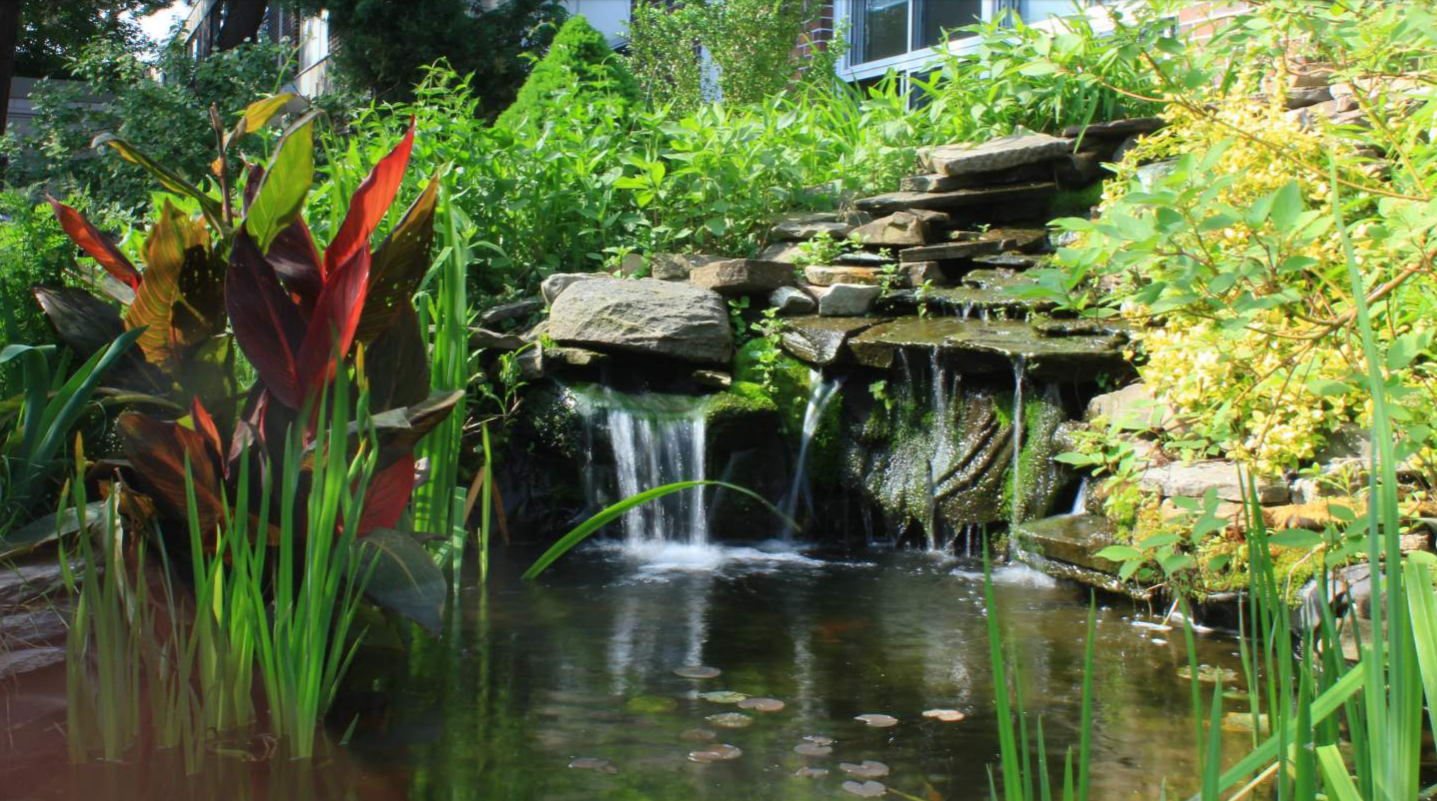
Then, in 2009, Ontario’s Ministry of Education introduced a Green Industries curriculum. The Don Mills Collegiate Institute, thanks to Dan’s enthusiasm, became one of the first schools in the province to begin integrating the curriculum into its courses. Dan tailored the program to focus specifically on the urban environment, and to help his students become the next generation of entrepreneurs working to solve society’s great urban challenges.
The amount of separate but dovetailed projects and courses that Dan and his students have created within their school’s Green Industries program is nothing short of impressive. As a start, they took an empty lawn-space in between school buildings and built five rows of raised-beds for growing crops.
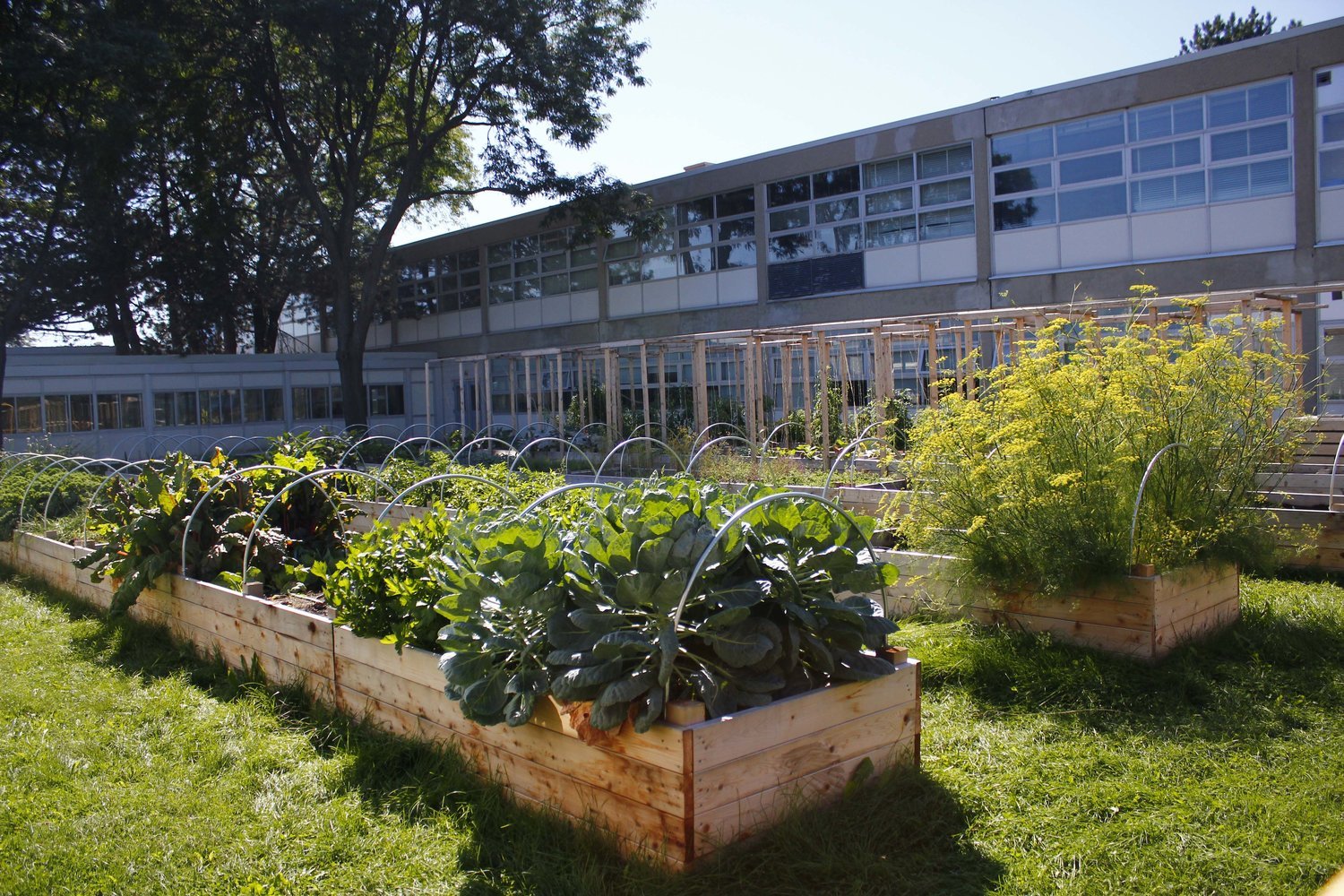
Funding was difficult to come by through the school system—a common theme across Dan’s projects—so Dan and his students applied for and successfully received grant funding from other organizations. “A lot of what we do is finding money outside of our public school board,” Dan explains, “which provides yet another opportunity for us to be entrepreneurial in our approach.”
All sorts of vegetables and herbs are grown in the plant beds at Don Mills Collegiate Institute, from potatoes that spend their time underneath the soil to vining crops that reach upwards toward the sky. A portion of the produce is used offsite by GEORGE restaurant, where the head chef raves about the quality and flavor.
To extend the growing season, Dan and his students got a small glass greenhouse installed (after several applications to the school board) where seedlings can be raised in warmth and sunlight until they are ready to face the harsher climate of Toronto’s outdoors. “Just today our grade 11’s were harvesting seeds for cilantro and dill,” says Dan, “and also drying out herbs for our hospitality program.”
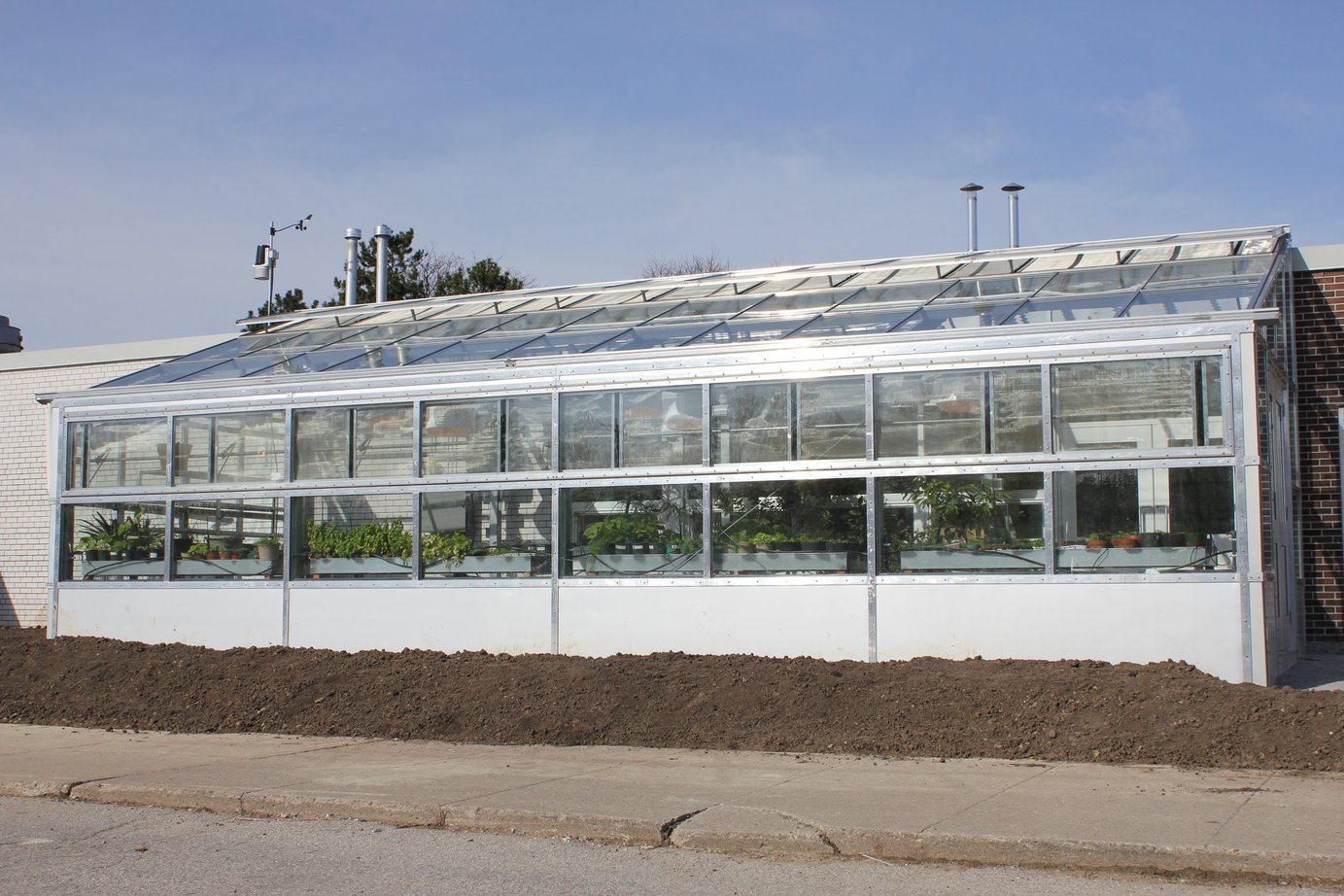
Dan and his students also designed and built an indoor aquaponics system that grows fish alongside plants, using bacteria to convert the fish waste into fertilizer for the plants.
Inspiration for the system arrived back when Dan was teaching the technological design program and Hurricane Katrina struck the Gulf Coast, damaging the region’s ability to produce fresh food in the disaster’s aftermath. “We thought about what kind of systems would survive a natural disaster and still be able to produce food,” Dan explains, “so we designed an aquaponics system and placed it in a well-protected storage room that houses the mechanical systems for the dust collector for our wood shop.”
Since the original version was built, Dan and his students have continued to innovate and tinker. The aquaponics system now exists as a model for resilient forms of urban agriculture, and to this end Dan and his students continue to push the realms of possibility.
“Not only can we study the aquaponics,” explains Dan, “we’re also transitioning all of our biology in the system to native species for the region.” Dan has challenged his students to find lakes in Ontario that mimic the environmental conditions they’ve measured over time within their school’s system, and, based on the students’ findings, they are swapping out all of the system’s fish and plants for those that exist within the region’s natural environment: perch and rainbow trout for fish, and watercress, mint, and native wild rice for plants.
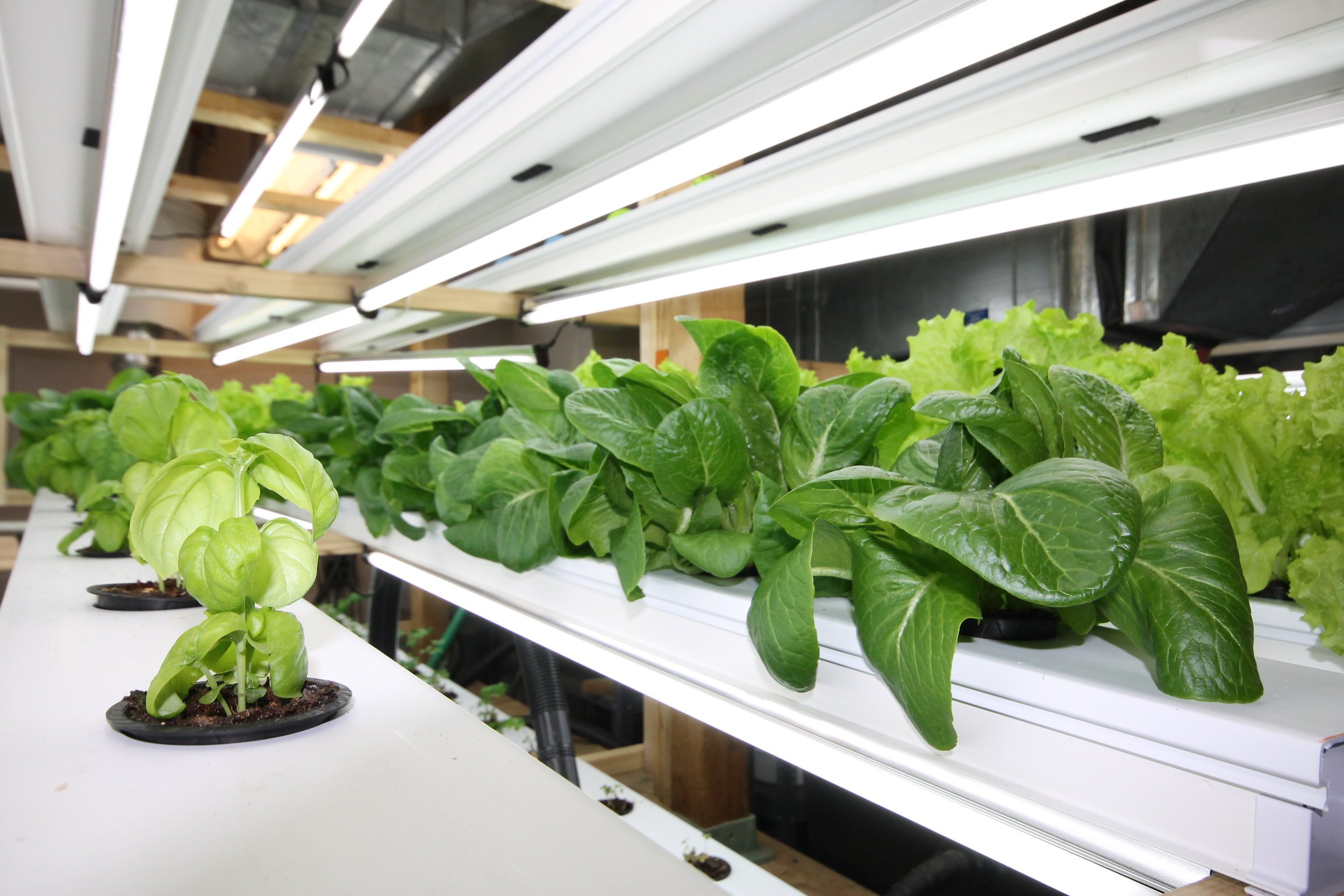
As if raised-beds, a greenhouse, and an aquaponics system weren’t enough growing components for a high school, Dan has also incorporated a vineyard into the Green Industries course. The students now have 160 vines growing that produce four different grape varietals.
“The school has a southern facing wall with a microclimate that we identified as being perfect for this project,” Dan explains. With the partnership that Dan established with Tawse Winery, some of the grapes are examined as part of their ongoing viticulture exploration within the region. The remaining grapes and juice are used by the school’s hospitality program. None of the grapes are turned into wine, currently.
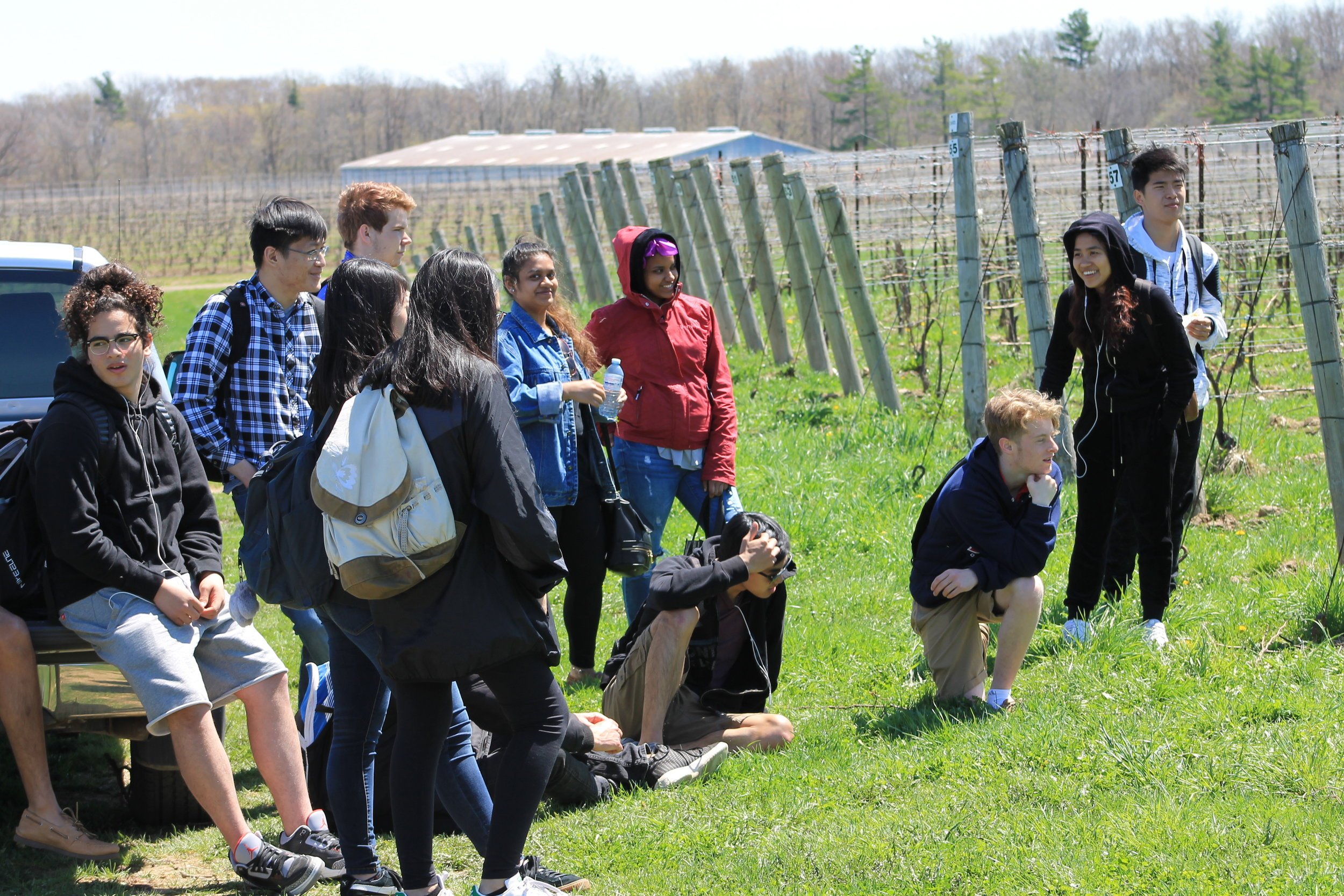
Always looking towards the next step, Dan has his vision set on creating an orchard with apples and peaches (“Sorry Georgia, ours are good too,” Dan exclaims), and potentially nut trees as well. To help educate himself and the students on this new project, Dan is seeking guidance from local indigenous mentors.
These mentors have already helped Dan and his students transition the aquaponics system to native species, and plans are also on the way to grow a traditional Three Sisters Garden at the school that will serve as an educational project to the students and general public.
In addition to using agriculture as a learning opportunity, Dan has also turned towards cooking in order to develop his students into urban entrepreneurs. His program already has an outdoor wood-fired oven that they use mainly to bake bread, and Dan is currently pushing the administration to get an indoor kitchen that will add further capacity.
.png?width=1436&height=736&name=image-asset%20(1).png)
68 percent of the world’s population is projected to live within cities by 2050, and in many countries that percentage will be significantly higher. For Dan, sparking an entrepreneurial flame in his students around preparing food is just as important as for growing food when it comes to feeding the future population.
“I need my school board people to now understand that it's not enough to grow and raise the food,” Dan says with a hint of frustration. “We have to cook, prepare, and preserve the food we grow and get these kids excited about feeding the world. It's not just about better nutrition, it’s also about bringing people together and enjoying meals with one another.”
.png?width=1421&height=873&name=image-asset%20(2).png)
Talking to Dan, it’s impossible to miss both the humility with which he speaks about his work, as well as the overwhelming enthusiasm that he has for this generation of young adults making their way through his classes.
Although Dan has been able to design unique systems and incorporate a multitude of novel components and partnerships into his school’s Green Industries course, he takes little credit for his abilities. “I’m not an expert,” he says, “I didn't excel in high school chemistry or biology, so what we do in my courses is just experiment and try to figure things out.”
“It's amazing what this generation can do,” Dan adds, reflecting on his experience working with the countless students that have come through his classes. “Their attitude is amazing—they are ready to go and there's nothing that can hold them back. For the rest of us, it's all about how do we find a way to harness this power that the younger generation has, and not stand in their way.”
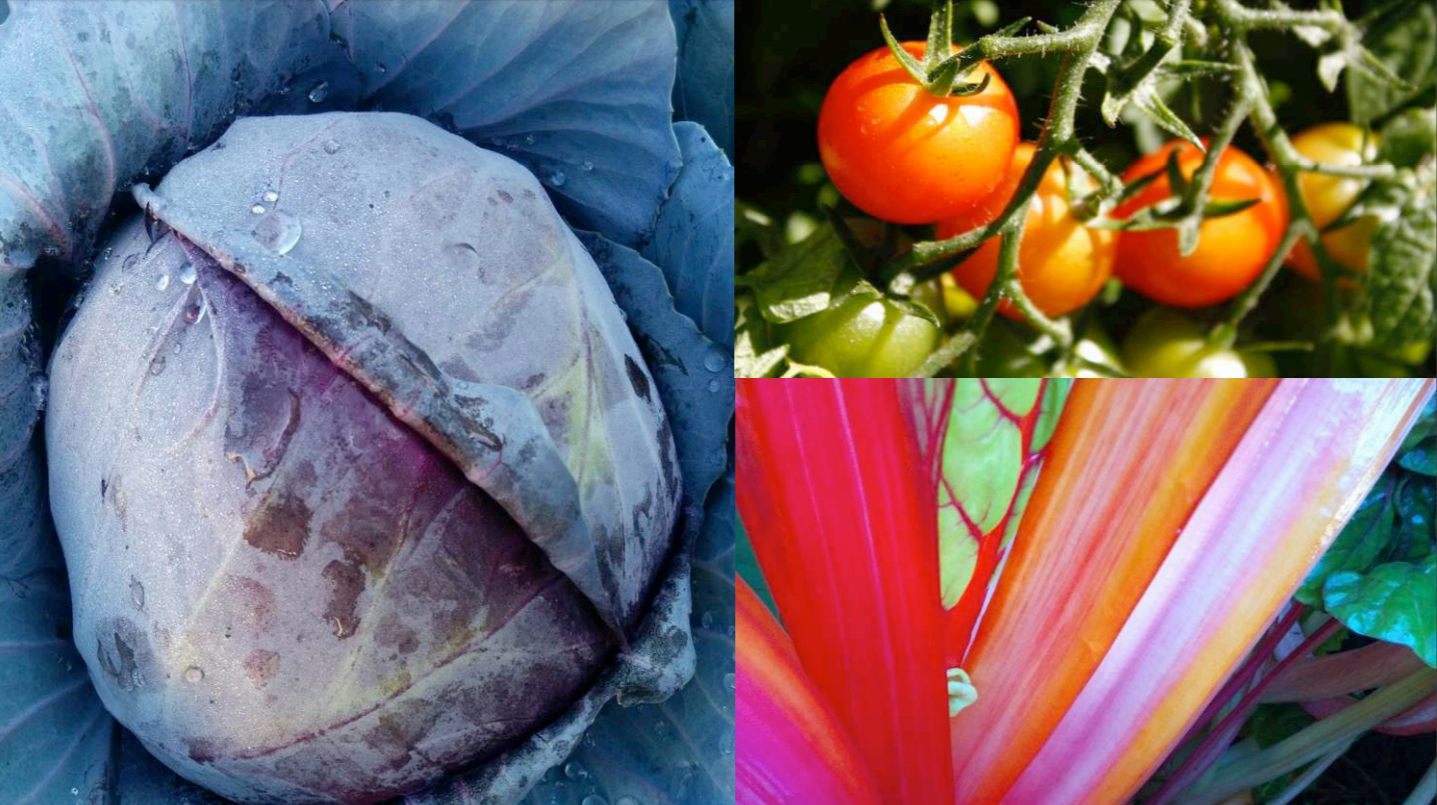
Around the world, many other schools have also begun to integrate agriculture and food education into their curriculums. Brooklyn, for its part, has invested millions of dollars into state-of-the-art urban agriculture education.
Still, the challenge of integrating programs similar to Dan’s Green Industries course can feel daunting in school systems with rigid requirements and limited flexibility. Dan, however, remains optimistic about the ability of schools to harness these tools to teach students.
“There are lots of school curriculums in the States and elsewhere in the world where the curriculum is actually already in place for programs like mine to happen within the existing boundaries and requirements,” Dan says. “What you need are creatively minded teachers, the administration to be on board, and then also to have the buy-in of those directly above the school administrators.”
“There are always roadblocks,” Dan admits, “so a big part of what we do here is break down walls, not just for ourselves but hopefully for others around the world who are trying to do the same thing.”
